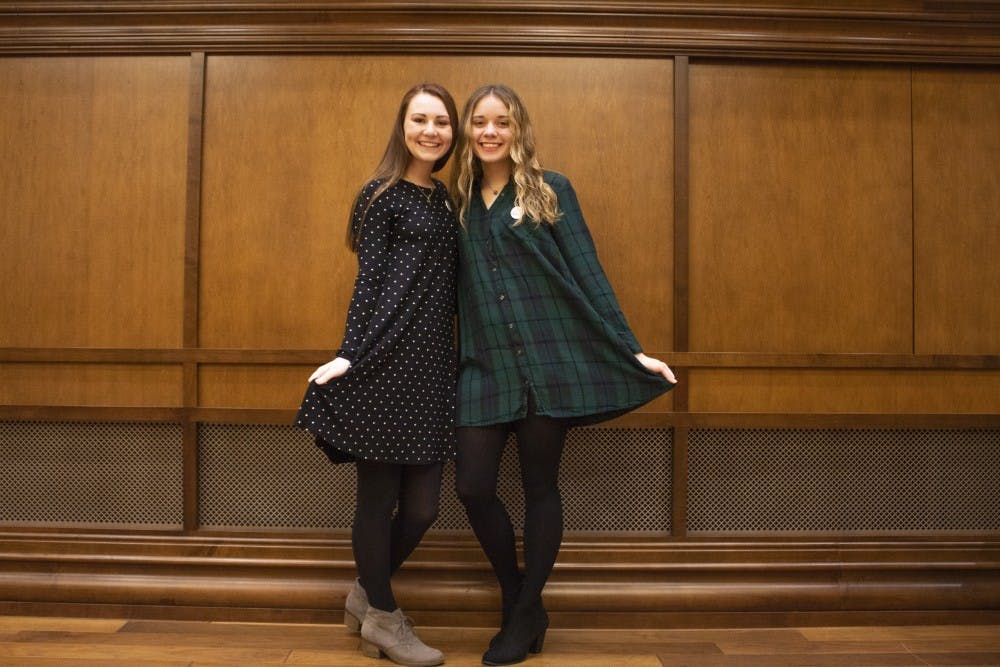Junior Jenna Crawford said sweatpants are a staple of her daily outfits, and few students have seen her dressed up this semester. But this December, she is wearing dresses every day to bring attention to modern slavery and human trafficking.
Dressember is a non-profit organization and social movement which aims to start conversations about human trafficking and raise funds for anti-trafficking initiatives. To do this, members wear dresses or bow ties every day in December with pins asking people to talk to them about their dress or bowtie.
Crawford said she got into Dressember because of a friend. She saw her friend posting on Instagram and Snapchat, detailing the month-long event, and became interested.
“I started to research the issue of modern slavery on my own,” Crawford said. “I became really interested in it and wanted to be an advocate the next December.”
Sophomore Olivia Oster said she got involved in Dressember because of her interest in the International Justice Mission and her fifth grade teacher participated in it. She had been following IJM and saw the work they were doing through money raised by Dressember.
Dressember doesn't directly help victims , but rather raises money for other organizations to go and rescue them, Oster said.
Crawford said the main strength of Dressember is raising awareness for the issue of modern slavery, which she said many people don’t realize is still a prominent problem.
According to the Global Slavery Index, there were about 40.3 million people enslaved worldwide in 2016, and about 71 percent of victims were women.
Another reason she participates in Dressember is because of the presence of human trafficking in the United States, Oster said.
The Index also estimates there are about 403,000 people in modern slavery in the U.S. in 2018.
Oster said she describes modern slavery as anything from sexual exploitation and forced labor to forced child marriages.
“While it’s not as prevalent as it is in other countries, it’s still happening here,” Oster said.
Human trafficking has also reached IU's campus. From 2004 to 2006, Tebby Kaisara was kept in student housing as a domestic slave.
Kaisara was promised education and a new life in the U.S., but instead spent 18 months nannying a graduate student's children and running errands for the family without pay, food or medical attention, according to the IndyStar.
Oster said she doesn’t believe the problem around stopping human trafficking is the apathy of people, but rather the lack of knowledge on the subject.
“It wasn’t that I didn’t care about modern slavery before I learned about Dressember, it was I didn’t know the extent to which it was happening,” Oster said.
The financial aspect of rescuing victims of human trafficking is another barrier to stopping the problem, Oster said.
“It’s not as easy as going in and getting them,” Oster said. “ You have to provide a life for them because they have nothing.”
While shoppers can’t go and dismantle companies that abuse their workers, consumers can use their money to support businesses operating ethically.
Crawford said she encourages people who want to do more than donate money to educate themselves, talk to their friends about it or even make their own Dressember team.
The ability to advocate and the option of raising awareness is woven into the fabric of Dressember, Crawford said.
“We have the option to use our voice,” Crawford said. “We have the choice to wear a dress every day, to go out there and speak our minds, to express ourselves, and there are people in this world who can’t.”




